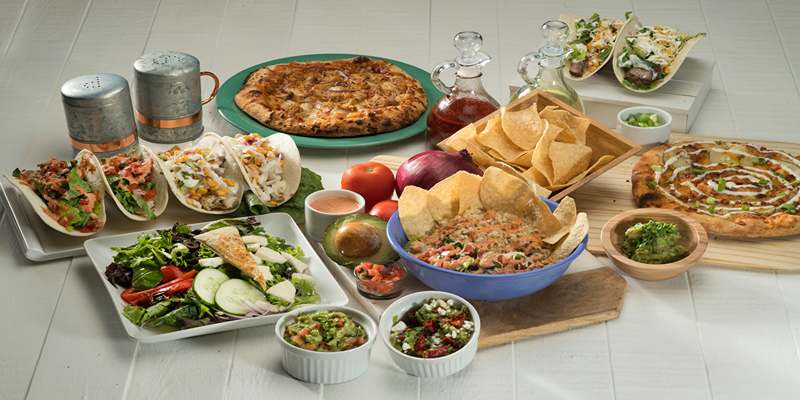Clean eating is based on eating whole nutrient-rich foods in their most natural form. It is based on the principle of consuming more fresh fruits, vegetables, lean proteins, whole grains, and healthy fats and less processed food, added sugar, and artificial ingredients. Clean eating habits enable one to fuel their body and boost their energy and help to maintain long-term general health.
What Is Clean Eating?

Clean eating is not a strict diet but rather a mindful way of choosing foods that nourish the body. The core principles include:
- Choosing Whole Foods – Prioritize foods in their natural form, such as fresh produce, nuts, seeds, and whole grains.
- Avoiding Processed Foods – Reduce intake of packaged snacks, sugary drinks, and foods with artificial ingredients.
- Reading Labels – Opt for products with minimal, recognizable ingredients.
- Balanced Meals – Include a mix of macronutrients (proteins, carbohydrates, and fats) in every meal.
- Staying Hydrated – Drink plenty of water and limit sugary beverages.
By following these principles, you can make healthier food choices that support long-term wellness.
Benefits of Clean Eating
Switching to a clean eating lifestyle offers numerous health advantages:
1. Improved Energy Levels
When you depend on such processed food your energies will always be up and down, because of the contents of the sugars and the unhealthy fats that such processed foods contain. These kinds of food give you an instant source of energy and is normally accompanied by a massive drop which makes you feel so tired and slow. Instead, clean eating focuses on whole, nutrient dense foods like fruits, vegetables, whole grains and lean proteins which give an individual a constant and continued source of energy through the day.
To prevent these energy slumps, and work longer intervals without feeling tired and sleepy, you need to supply your body with premium nutrients that will provide you with more energy and make you feel more awake and alert.
2. Better Digestion
Refined and processed food also deprives your body of the fiber it needs to digest food properly, resulting in such uncomfortable symptoms as bloating, constipation and irregular bowel movements. Clean eating emphasizes the addition of whole food such as fruits, vegetables, legumes, and whole grains that are naturally high in dietary fiber.
Fiber is important in maintaining a healthy digestive system, as it helps in the passage of food along the digestive tract, ensuring that there is no constipation as well as feeding the good gut bacteria. In the long term, the consumption of whole fiber-rich foods can positively change the state of your digestive system, eliminate bloating, and help you feel much lighter and more comfortable after meals.
3. Weight Management
Dieting can be an uphill task, or rather a struggle, to many people when the junk food eaten during the diet contains empty calories. Clean eating is a natural approach to healthy weight maintenance that does not involve restrictive and extreme dieting. When you substitute refined snacks, sweet beverages, and fast food with nutritious and high-nutrient alternatives, you cut down on your empty calorie consumption ridiculously.
Moreover, unprocessed food such as fruit, vegetables, lean protein, and healthy fats keep you satisfied longer, so you do not need to snack and overeat. In the long term, this moderated attitude to food helps maintain stable weight gain along with the promotion of health and well-being.
4. Stronger Immune System
Your immune system relies on a steady supply of essential vitamins, minerals, and nutrients to function properly and protect you from illness. Unfortunately, a diet heavy in processed foods often lacks these vital nutrients, leaving your immune defenses weaker. Clean eating emphasizes nutrient-rich foods like colorful fruits, leafy greens, whole grains, nuts, seeds, and lean proteins, all of which provide the vitamins, antioxidants, and minerals your body needs to fight off infections and illnesses.
Consistently eating a diet rich in these foods strengthens your immune system, helping you recover from colds faster, avoid frequent sickness, and improve your overall resilience to health challenges.
How to Start Clean Eating
Transitioning to clean eating doesn’t have to be overwhelming. Follow these practical steps:
1. Plan Your Meals
Prepare a weekly meal plan with balanced options to avoid last-minute unhealthy choices. Include:
- Breakfast: Oatmeal with berries and nuts
- Lunch: Grilled chicken with quinoa and steamed vegetables
- Dinner: Baked salmon with sweet potatoes and a side salad
2. Shop Smart
Stick to the perimeter of the grocery store where fresh produce, meats, and dairy are located. Avoid aisles with processed snacks and sugary items.
3. Cook at Home
Home-cooked meals give you control over ingredients, ensuring they are fresh and free from unnecessary additives.
4. Stay Hydrated
Replace sodas and sugary drinks with water, herbal teas, or infused water with lemon and mint.
5. Practice Moderation
Clean eating doesn’t mean perfection. Enjoy occasional treats mindfully without guilt.
Foods to Include in a Clean Eating Diet
Focus on these nutrient-packed options:
- Fruits and Vegetables- Rich in vitamins, minerals, and antioxidants. Aim for a variety of colors for maximum benefits.
- Whole Grains- Choose quinoa, oats, brown rice, and whole wheat over refined grains like white bread and pasta.
- Lean Proteins- Opt for chicken, turkey, fish, eggs, beans, and tofu for muscle repair and satiety.
- Healthy Fats- Include avocados, nuts, seeds, and olive oil for heart health and brain function.
- Dairy or Dairy Alternatives- Select plain yogurt, milk, or unsweetened almond milk for calcium and probiotics.
Foods to Avoid or Limit
To maintain a clean eating lifestyle, minimize or eliminate:
- Refined sugars (candy, pastries, soda)
- Processed meats (sausages, deli meats)
- White flour products (white bread, pastries)
- Artificial sweeteners and preservatives
- Fried and fast foods
Overcoming Common Challenges

Adopting clean eating may come with hurdles, but these tips can help:
- Time Constraints- Batch cook meals on weekends for quick, healthy options during busy weekdays.
- Cravings- Satisfy sweet cravings with natural options like fruit or dark chocolate (70% cocoa or higher).
- Eating Out- Choose restaurants with whole-food options, such as salads, grilled proteins, and steamed vegetables.
- Budget Concerns- Buy seasonal produce, bulk grains, and frozen vegetables to save money without sacrificing nutrition.
Conclusion:
Clean eating is a sustainable approach to health that emphasizes real, wholesome foods. By making gradual changes—such as cooking more meals at home, choosing whole ingredients, and staying hydrated—you can experience lasting benefits for your body and mind.












